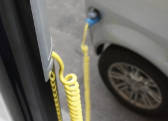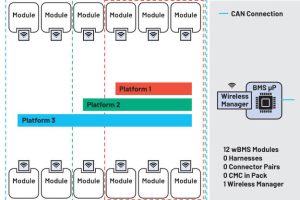
It aims to prevent multiple proprietary schemes emerging from car makers.
“Electric vehicle chargers have been around for a little while and there have been standards for 5-10 years relating to the charging of electric vehicles like milk floats,” said Steve Hayes of test house and consultancy TRaC. “These are general performance standards about safety, EMC and environmental characteristics.”
Hayes is also nominated as the UK expert for the European Commission’s ‘Mandate on Vehicle Charging, to the European standardisation bodies – CENELEC, CEN and ETSI – to develop a common European solution for such charging.
The committee Hayes will sit on will be called for the first time in the next few weeks and is tasked with producing an initial standard within a year.
Potential problems go further than just choosing the shape of the charging plug.
“There is an idea that vehicles will be plugged in over night,” said Hayes. “Now Germany is proposing to have a million electric vehicles by 2020. Imagine the massive power requirement when everyone gets home. We will need intelligent chargers.”
To manage the surge, these chargers will probably have to link to the smart grid and negotiate the amount of power they can draw.
“You also want chargers that are the equivalent to filling up at a petrol station. Three phase and 10, 20 or 30A filing up the car in 15 minutes or so,” said Hayes. “And the governments will want an input because they will loose a lot of fuel tax.”
There are many scenarios to be discussed.
For example: will the actual chargers be inside the vehicles, or inside the road-side terminals?
Will power be transferred through contacts or inductively?
And if inductively, through a plug-like coupler or an under-road coil?
There are also the safety interlocks, plug definitions if there are to be plugs, and at least an initial nod to smart grid communication.
“Ultimately, the committee will suggest a favoured arrangement,” said Hayes. “In the first instance we will come up with plugs and sockets and a set of designs required to get the whole thing off the ground, which will be refined over time.”
Hayes’ firm TRaC is already involved in testing charging stations to existing specifications, and is beginning to offer design services.
“Things don’t always pass test and we are trying to get manufacturers to add limited testing to the design phase,” said Hayes. “And our engineers can look at the circuits early.”
The same applies to mechanical design. “We have finite element analysis and can model people kicking the charging station or backing a car into it before anyone has built it.”
TRaC also tests vehicle components and complete vehicles to EMC, radio, safety and environmental standards and the “reliability and legislative demands of the automotive market,” said the firm.
IT is an appointed Vehicle Certification Agency with UKAS accreditation for whole vehicle testing as well as sub-assemblies.”
 Electronics Weekly Electronics Design & Components Tech News
Electronics Weekly Electronics Design & Components Tech News
